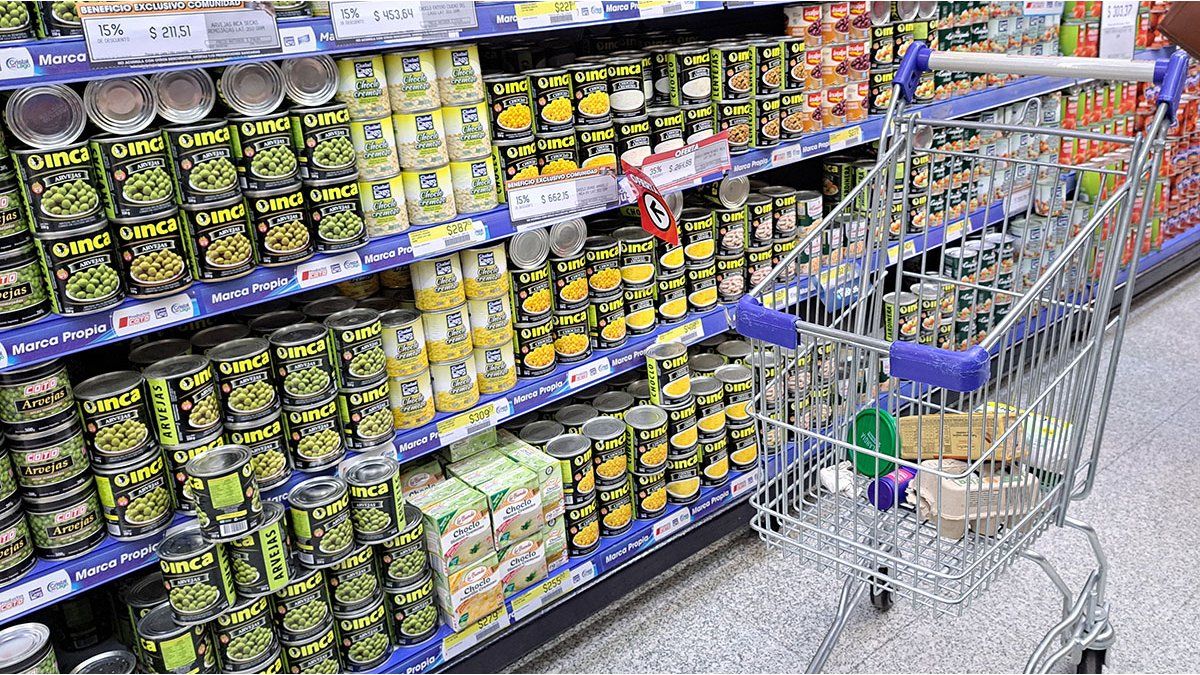One of those factors will be internal demand: Private consumption fell 1.3% in the second quarter in the seasonally adjusted measurement and, they estimate, this trend would continue in the second part of the year. Although they clarified that the measures adopted by the Government can help mitigate the impact, the effect of high inflation on purchasing power will be felt especially in the fourth quarter.
In this regard, according to a study prepared by Fundación Capital, It was highlighted that the “leading indicators continue to present mixed results within the framework of a purchasing power that has already accumulated more than twelve consecutive months of decline.” (8.5% year-on-year estimated in September), but with some sectors of the population that continue to channel the lack of savings/investment alternatives into certain goods and services.”
In that sensethey highlighted that mass consumption grew 5.2% year-on-year in August, with a strong jump in sales the week after the PASO, “which can be associated with defensive behavior of consumers in the face of price increases.” “Additionallythe consumption of durable goods began to show negative records. The sale of household appliances had a decrease of 18.7% yoy in June vs. an increase of 4.2% yoy in the January-May average. Likewise, car sales to the domestic market already had two consecutive negative records in July (-2.4% yoy) and August (-11% yoy), according to ADEFA,” the report explained.
Meanwhile, when analyzing the evolution that may occur in the final months of the year, they noted: “As for trade, a decline is anticipated in line with the fall in private consumption expected for the coming months (-3% y/y in the fourth quarter). In effect, the purchasing power of workers would continue to suffer (-11.2% a.i. average in the last third, formal and informal) and although the measures palliative granted by the authorities in the electoral context (VAT refund, $30,000 bonuses and financing facilities) could moderate the impact on consumption, they will not compensate it in a context of six consecutive years of loss in purchasing capacity (-20 .8%)”.
Projections
Another sectoral data that accounted for the contraction in consumption levels in August was the Indicator prepared by the CAC, which registered a drop of 1.8% compared to July in the seasonally adjusted measurement and a decline of 0.9% year-on-year. Although in the accumulated of the first eight months there was a growth of 2.1% year-on-year, the entity highlighted that “The loss of dynamism seen in recent months would continue to worsen.”
In this sense, the CAC also highlighted the measures announced by the Government as a palliative: “In response to the loss of purchasing power due to inflation resulting from the devaluation, The national government promoted bonus measures and price freezes with the aim of rebuilding real wages through these policies and, consequently, the level of consumption. Although the price freeze is transversal to a large part of society, the bonuses, economic reinforcements and VAT refunds are focused on those people with lower purchasing power and, therefore, will have a greater impact on consumption. The ability of these measures to translate into effective improvements in the purchasing power of families will influence the behavior of the following months.”
Meanwhile, a report from the IERAL of the Mediterranean Foundation noted that “the deterioration of the macro, mixed with electoral uncertainty and the lack of anchors for expectations mean that the economy is entering a risky vicious circle of devaluation and inflation, with direct effect on the purchasing power of workers.” Therefore, he considered that ““Sales of mass consumption goods would be falling between 2.0% and 3.0% year-on-year, both in August and so far in September.”
This cooling in consumption forecast by private consulting firms would negatively affect the evolution of the level of activity. In this regard, the consulting firm LCG projected: “So far in the second half of the year, the instability associated with the acceleration of inflation, the devaluation of the exchange rate and the persistently high exchange rate gap has been increasing and will slow down decisions.” consumption and investment”.
“As opposed, The Government seems to have put aside its budget restriction, investing, since the PASO, almost 1.2 pp of GDP in measures that imply more income for a relevant number of workers, retirees and social beneficiaries. This could provide some stimulus to consumption, but it will be concentrated in the months tied to the elections. And December, with a change of government, is still an unknown, but any correction in relative prices, such as the one anticipated by the market, will initially have a negative impact on activity,” the firm concluded.
Source: Ambito




